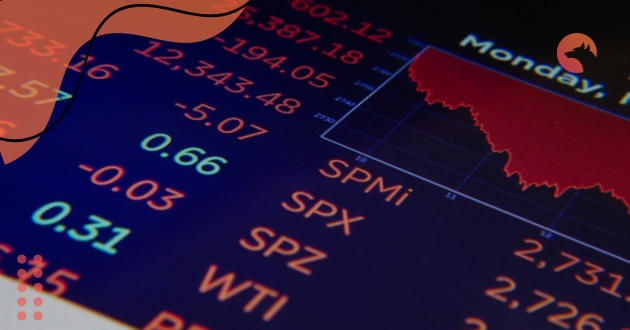What is a stock market index? This question serves as a fundamental entry point into the world of finance, encapsulating an essential concept that investors must grasp. At its core, a stock market index acts as a benchmark, providing a snapshot of market performance and guiding investors in making informed decisions.
Furthermore, understanding what is a stock market index extends beyond mere definitions. Investors utilize these indices to gauge the performance of various sectors, comparing individual stocks against a collective measure. This comparative analysis is vital for portfolio management, allowing for strategic adjustments based on market trends and economic shifts.
In addition to their importance in investment strategies, stock market indices are also influential in economic reporting and analysis. They serve as a barometer for economic health, reflecting investor sentiment and market trends.
What is a Stock Market Index?

A stock market index is a statistical measure that represents the performance of a specific group of stocks. These groups can range from large, established companies to smaller, emerging businesses. Essentially, the index provides a composite picture of market movements, allowing investors to see how a particular segment is performing over time.
1. Importance of Stock Market Indices
Understanding the significance of stock market indices is paramount for both novice and experienced investors. These indices help to identify trends, assess market volatility, and make informed decisions about buying or selling stocks. They serve as a reference point for performance evaluation, providing insights into which sectors are thriving and which are lagging.
2. Types of Stock Market Indices
There are various types of stock market indices, each serving different purposes:
- Broad Market Indices: These include large groups of stocks, such as the S&P 500 and the Dow Jones Industrial Average. They offer a comprehensive view of market performance.
- Sector Indices: These indices focus on specific sectors of the economy, such as technology, healthcare, or energy. This specialization helps investors target particular areas for investment.
- International Indices: These track the performance of stocks in international markets, providing insight into global economic trends.
Exploring the Best Index Funds to Invest In
When considering what is a stock market index, it is essential to understand its practical application in the world of investing. One of the most effective ways to invest in these indices is through index funds. These funds aim to replicate the performance of a specific index, allowing investors to gain exposure to a diversified portfolio of stocks with relative ease. By investing in index funds, individuals can benefit from the market’s overall performance without the need to select individual stocks.
If you are looking for reliable options to grow your investment portfolio, exploring the best index funds to invest in can provide you with a range of choices tailored to different financial goals and risk tolerances.
These funds often come with lower fees compared to actively managed funds, making them an attractive choice for long-term investors. Understanding both stock market indices and index funds will empower you to make more informed financial decisions.
Investing in Index Funds Through Vanguard (What is a stock market index)
Understanding what is a stock market index is crucial for investors looking to navigate the financial markets effectively. One of the most accessible ways to invest in these indices is through index funds, which are designed to mirror the performance of a specific stock market index.
Vanguard, a prominent investment management company, offers a variety of index funds that provide investors with an opportunity to participate in the broader market with lower costs and reduced risk.
By investing in Vanguard’s index funds, you can gain exposure to diverse sectors and companies that comprise major indices, allowing your portfolio to benefit from the overall growth of the market.
For those interested in exploring these investment options further, you can visit Vanguard’s to learn more about their offerings and how they align with your financial goals. This connection between stock market indices and index funds emphasizes the importance of informed investing strategies in today’s financial landscape.
The Role of Stock Market Indices in Economic Indicators
1. How Indices Reflect Economic Health (What is a stock market index)
Stock market indices serve as critical indicators of the overall economic environment. By tracking the performance of a select group of stocks, these indices provide insights into the market’s direction and investor sentiment.
When indices show upward trends, it often indicates economic growth and increased investor confidence. Conversely, declining indices may signal economic challenges and market volatility, making them essential tools for economists and analysts alike.
2. Correlation with Economic Data
Indices often correlate with various economic data points, such as GDP growth, unemployment rates, and consumer spending. This relationship helps investors and policymakers understand how changes in the economy can impact market performance.
Monitoring stock market indices alongside economic indicators allows for a more comprehensive view of the financial landscape, guiding investment strategies and policy decisions.
The Impact of Global Events on Stock Market Indices
1. How Geopolitical Events Influence Market Performance
Global events, such as political upheaval, trade disputes, and natural disasters, can significantly impact stock market indices. These events create uncertainty in the markets, leading to fluctuations in stock prices.
Investors closely monitor indices during such events to gauge market reactions and adjust their portfolios accordingly. Understanding the influence of global events on stock market performance is crucial for making informed investment decisions.
2. Market Reactions to Economic Policies (What is a stock market index)
Economic policies, such as interest rate changes and fiscal stimulus measures, can also affect stock market indices. For instance, when central banks lower interest rates, it often leads to increased borrowing and spending, positively impacting stock prices and indices.
Conversely, tightening monetary policy can lead to market declines. Investors must stay informed about policy changes and their potential impact on stock market indices to navigate their investments successfully.
Analyzing Historical Trends in Stock Market Indices
Analyzing historical trends in stock market indices provides valuable insights into long-term market behavior. By examining past performance, investors can identify patterns, understand market cycles, and make more informed decisions about future investments.
Historical data also helps in assessing the risk associated with various indices, enabling investors to align their strategies with their risk tolerance.
Conclusion: What is a stock market index
In conclusion, understanding what is a stock market index is essential for anyone looking to navigate the complexities of financial markets. Stock market indices serve as valuable tools that reflect the performance of a select group of stocks, providing insights into market trends and investor sentiment.
Moreover, the significance of stock market indices extends beyond individual investment. These indices serve as economic indicators, helping policymakers and analysts gauge the health of the economy. By correlating market performance with various economic data points, investors can better understand how macroeconomic factors impact their investments.
As we look to the future, stock market indices will continue to evolve in response to changing market dynamics and technological advancements. The rise of new investment strategies, such as ESG-focused investing, highlights the growing importance of indices that reflect societal values alongside financial performance.



